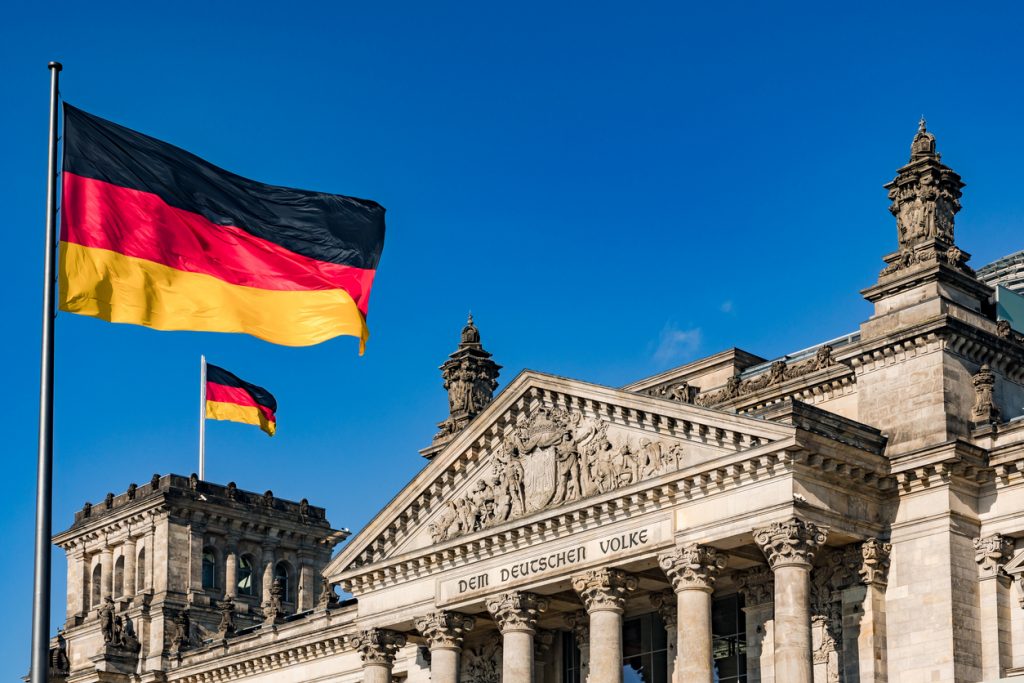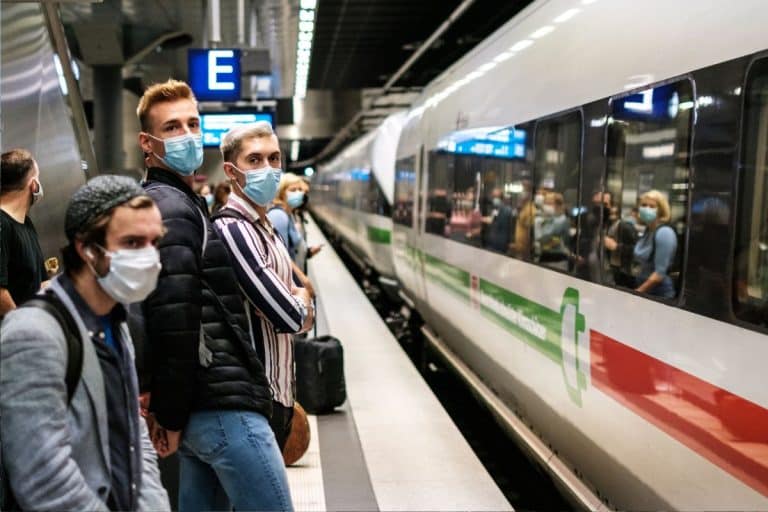Germany will enforce new COVID-19 rules during the fall and winter seasons according to the German Chancellor Olaf Scholz’s Cabinet.
The new regulations have yet to be approved by the Bundestag and Bundesrat, but they are expected to pass.
The announcement of the regulations, which also require N95 face masks to be worn on all long-distance travel on trains and buses as well as flights, coincided with the emergence earlier this week of pictures showing the German Chancellor and German Economy Minister Robert Habeck on a trip to Canada without masks.
The images sparked significant public condemnation of what was perceived as a double standard between politicians and the general public.
Medical face masks are currently mandatory on airplanes and public transportation, while N95 masks are only advised.
The German Air Force, which operates government flights, is subject to specific pandemic regulations. According to Justice Minister Marco Buschmann and Health Minister Karl Lauterbach, all passengers on the flight, which included German business leaders and reporters, were subjected to PCR testing before boarding the aircraft.
The minister of justice did, however, admit that “politically, I would recommend to us as a federal government that we apply the same rules everywhere that apply elsewhere.”
“Because otherwise, of course, the feeling arises that you’re willing to impose something on the citizens that you don’t want to impose on yourself,” Buschmann added. “And that’s why I can also understand to some extent that there’s so much talk about it.”

In addition to the requirement to wear N95 masks, which will be in effect from Oct. 1 through April 7, there will also be a statewide requirement to wear masks before entering hospitals, nursing homes, and other facilities where vulnerable individuals are housed.
In addition, the 16 states may enact their own laws depending on how severely their regions are affected by the virus.
Masks may be required by state governments on public transportation, in schools for students in fifth grade and above, and at outdoor gatherings.
The number of people attending public events may be restricted, and testing may be mandated if the virus spreads widely again.
There would be no further lockdowns or school closures no matter how the pandemic develops during the cold season.
“Students were certainly the group that suffered the most in the pandemic…, especially in terms of exercising their right to education, especially in terms of school closures,” Buschmann said. “And that’s why I’m also glad that we were able to quickly agree that the instrument of school closures is therefore completely disproportionate.”

